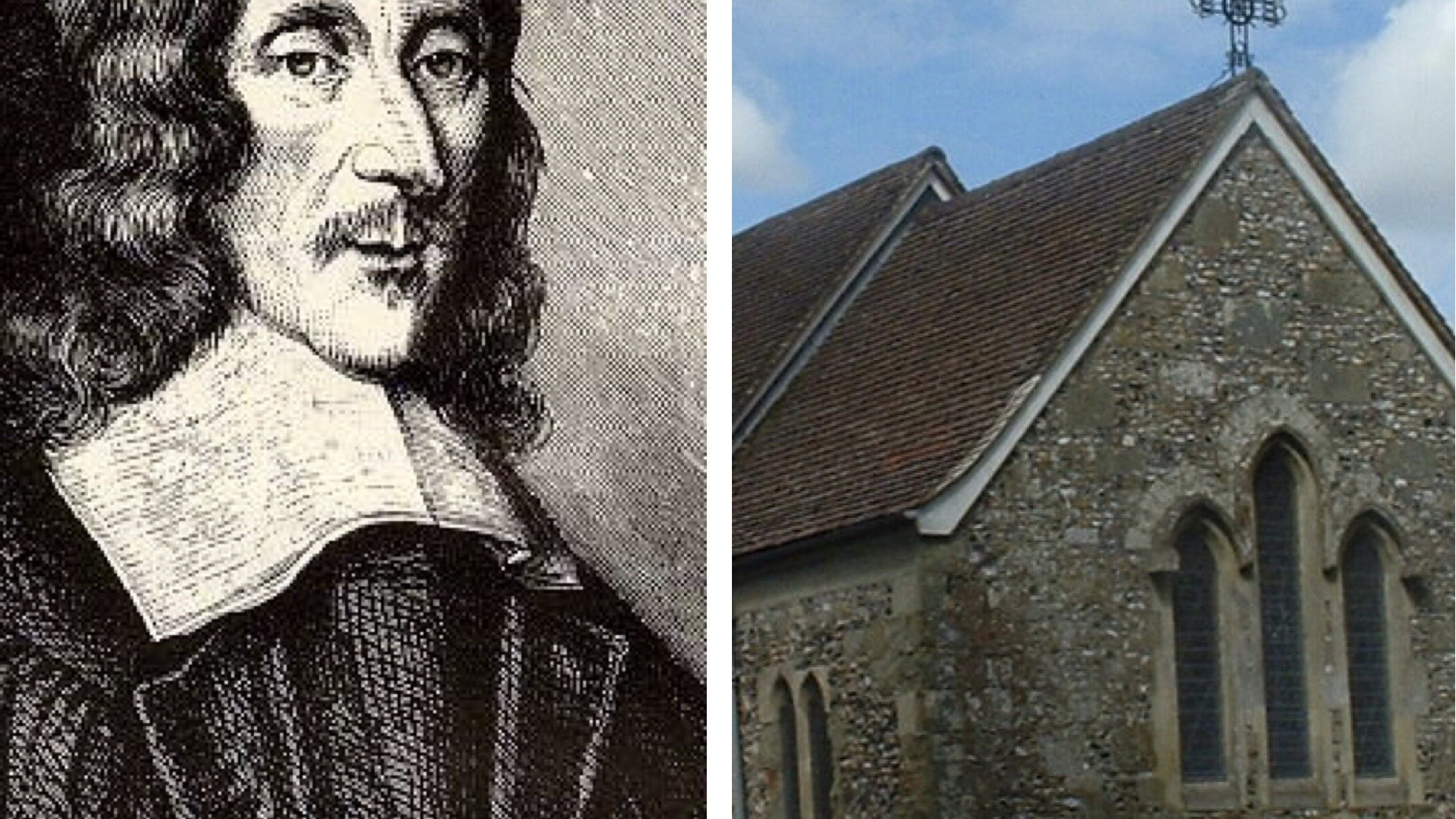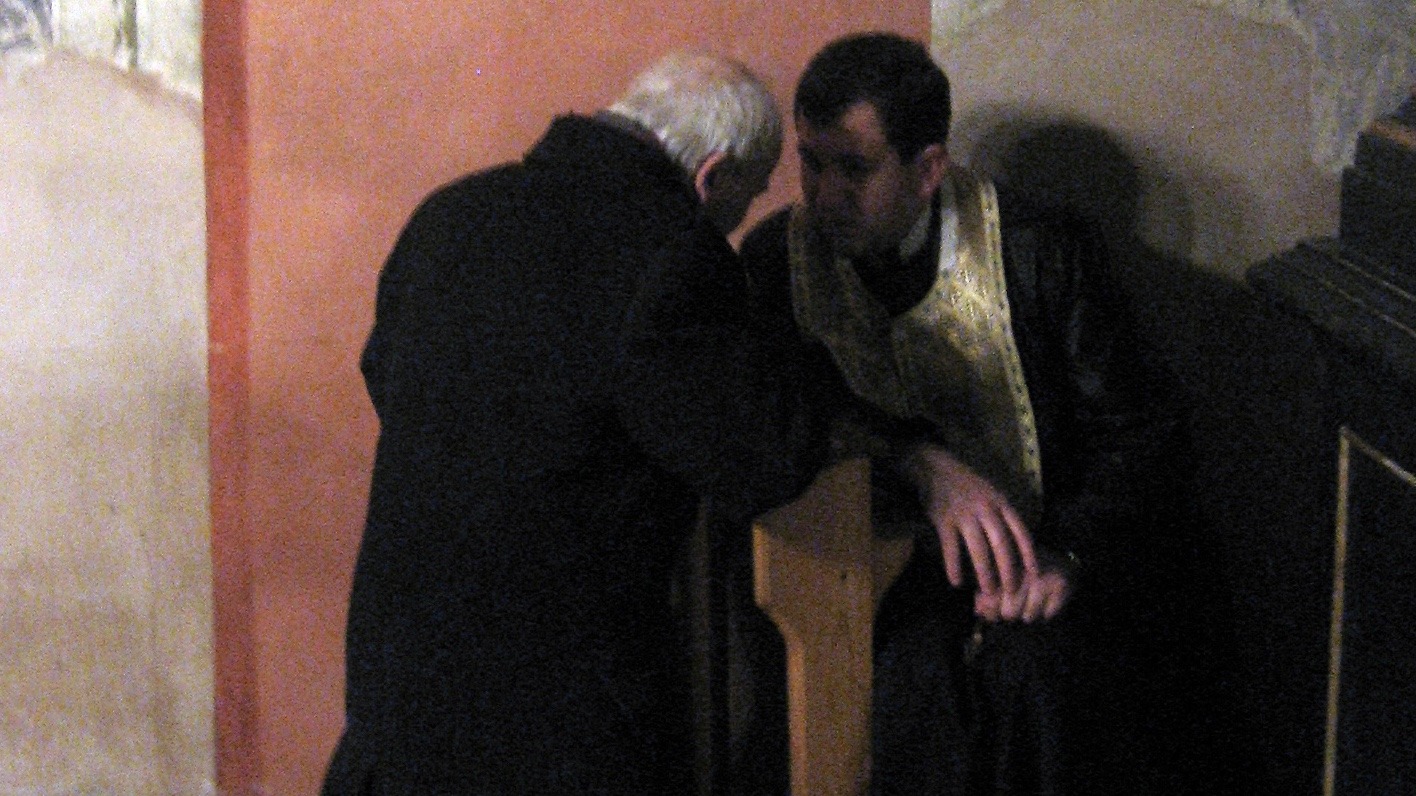 Miserere me, Domine—“Have mercy on me, O Lord”; that’s the 51st psalm. If you pray the traditional Liturgy of the Hours, you pray it every morning at Lauds. You begin every day with repentance, as you begin every Mass with repentance. “Have mercy on me, O Lord, for I have sinned.” It is good for those to be the first words you say each day. In that spirit George Herbert begins his poem: “Lord, I confesse my sinne is great.” Before a Catholic becomes a full member of the Church, the first thing he or she does is go to Confession. Repentance is first; the Church’s readings for the first Sunday of Lent, Year A—the first of the three-year cycle—begin with the reminder that we all have sinned in Adam. Repentance is first.
Miserere me, Domine—“Have mercy on me, O Lord”; that’s the 51st psalm. If you pray the traditional Liturgy of the Hours, you pray it every morning at Lauds. You begin every day with repentance, as you begin every Mass with repentance. “Have mercy on me, O Lord, for I have sinned.” It is good for those to be the first words you say each day. In that spirit George Herbert begins his poem: “Lord, I confesse my sinne is great.” Before a Catholic becomes a full member of the Church, the first thing he or she does is go to Confession. Repentance is first; the Church’s readings for the first Sunday of Lent, Year A—the first of the three-year cycle—begin with the reminder that we all have sinned in Adam. Repentance is first.
Fractures well cured make us more strong. [“Repentance” by George Herbert.]
BY: Henry Matthew Alt • February 27, 2023 • Literature; Liturgical Year
 It is wearisome to need to go to confession every week, week after week, but it is more wearisome to go once a year, even once every several years. I don’t know why I have often chosen the latter. The sins pile up like laundry you stare at in denial. That’s my problem this Ash Wednesday: soiled clothes. Maybe it’s my problem every Ash Wednesday. Ten Lents ago, when it was my first year blogging, I spent a liturgical season writing about the Victorian poet Christina Rossetti. I’ve not done that kind of thing since, so perhaps it’s time again. This year I’m going to talk about John Donne—with a break one week for George Herbert and another week for Gerard Manley Hopkins.
It is wearisome to need to go to confession every week, week after week, but it is more wearisome to go once a year, even once every several years. I don’t know why I have often chosen the latter. The sins pile up like laundry you stare at in denial. That’s my problem this Ash Wednesday: soiled clothes. Maybe it’s my problem every Ash Wednesday. Ten Lents ago, when it was my first year blogging, I spent a liturgical season writing about the Victorian poet Christina Rossetti. I’ve not done that kind of thing since, so perhaps it’s time again. This year I’m going to talk about John Donne—with a break one week for George Herbert and another week for Gerard Manley Hopkins.











